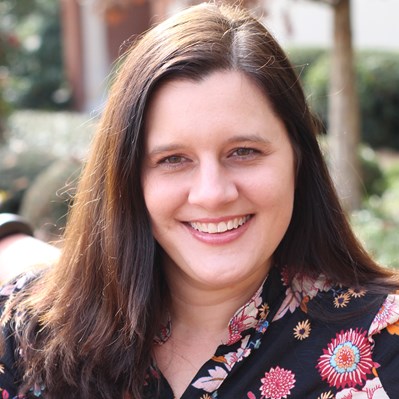
Executive Director of College Preparation and Outreach, Clemson University
Clemson, South Carolina
Office Representing: Disabilities/Equity & Diversity
Amber Lange is currently the executive director of a newly formed office within the Division of Inclusion and Equity at Clemson University: The Office of College Preparation and Outreach. The office houses several college access programs that target underrepresented high school students and help them reach their goal of higher education. Within the new office, Lange works with campus partners to help students through successful transitions while enrolling at Clemson University. Lange has been working in college access for 10 years after eight years in residential life. She has worked with students at Southern Illinois University Edwardsville, American University and Clemson University.
How did you first get interested in or involved in higher education issues?
"As a first-generation student, I found my own way through the higher education system as an 18-year-old. I moved into my first residence hall by myself and did not fill out the FAFSA my freshman year. I quickly became involved on campus and realized that higher education was the key to all of my goals," Lange said. "I became a resident assistant my junior year and went on to be a residence hall director in graduate school. I wanted to help other first-generation students find their way to college, so after four years of working full-time in residential life, I became the program director of Emerging Scholars, a college access program that works with rural students of color in South Carolina. For the last 10 years I have built up the program and increased the number of students we serve. We have now started another program, Tiger Alliance, which works with young men of color in 10 local high schools. My students have even inspired me to pursue my Ph.D. in educational leadership. I am excited to not only be a practitioner, but contribute by doing scholarly research that will be used by others to support students who might not have seen higher education in their future."
Why did you apply to be a part of the Higher Education Committee of 50? What drew you to this opportunity?
"I was told about the opportunity by a staff member from the National College Access Network (NCAN). As a long time member I have presented at their annual conference about my work with rural students of color. I applied because I see the struggle my students face when it comes to the financial burden of higher education," Lange said. "I have sat with them while filling out the FAFSA and seen their frustration when they don't know what information to enter. I have seen lives changed when Clemson University offered full scholarships to our students and hope to educate others on the importance of institutional commitment. I hope I can be a voice for students who rely on financial aid and give input when discussing the needs of underrepresented students."
Membership(s) held with other professional associations: